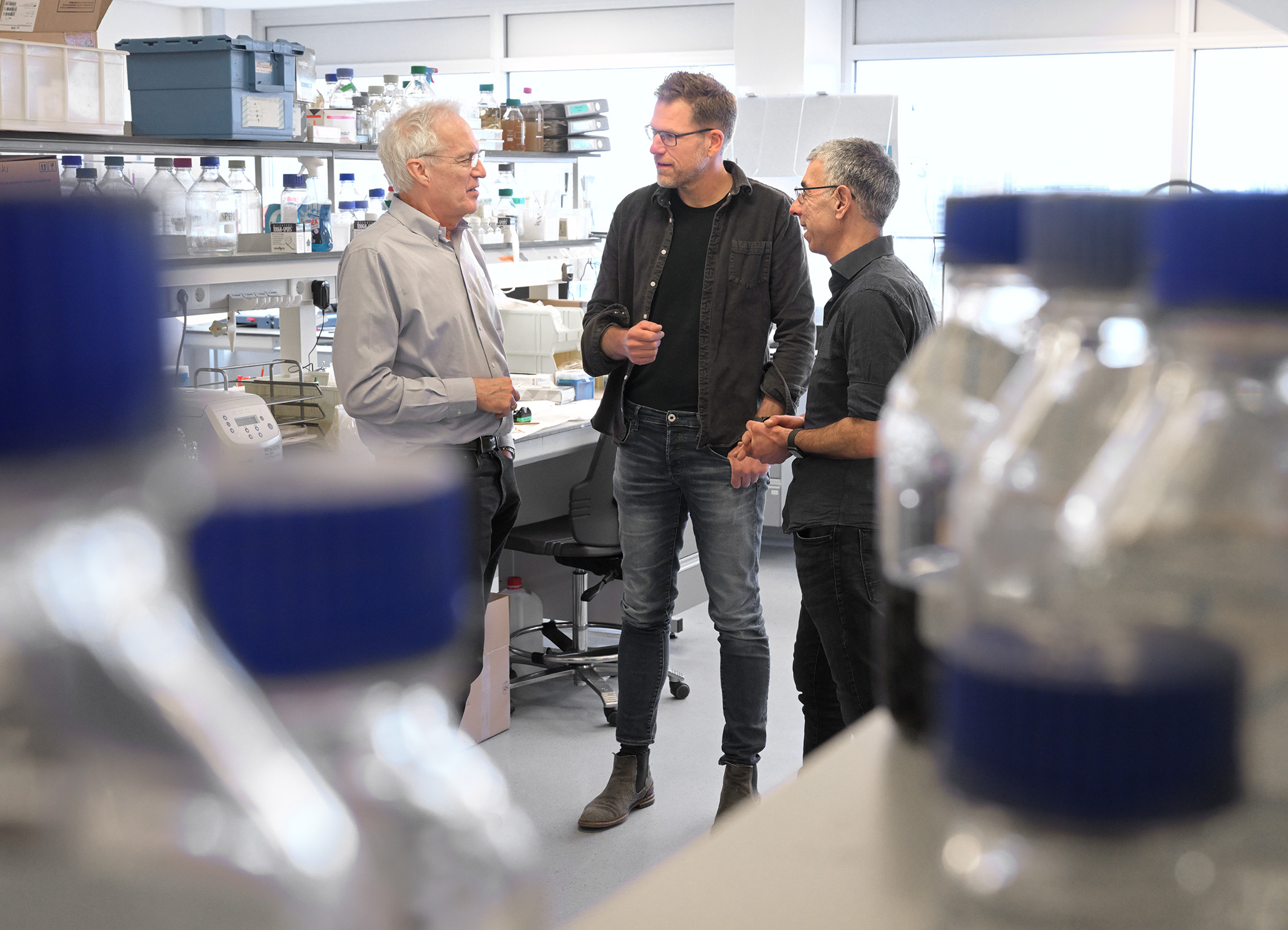More than 20 years ago, Bernards, Agami, and Brummelkamp were the founders of an important breakthrough: the first method to inhibit genes persistently in mammalian cells. They published their findings in Science. Since then, scientists from all over the world have cited their work nearly 7000 times in their own publications. And now all three researchers each receive an Advanced Grant to further pursue their research.
Group leader Thijn Brummelkamp is in the habit of uncovering new territory. With his genetic techniques and clever puzzling, he recently uncovered a fatty finding: human cells can produce fuel though a different pathway than previously thought. These kinds of findings lead him to expect that there are more processes in cells that are ‘invisible’ and, as a result, undiscovered, possibly because they are overshadowed by other processes. “I’m very grateful to be awarded this grant, which will hopefully allow us to take our understanding of genetics in human cells to a higher level,” Brummelkamp says. “I hope that it will lead to unexpected, exciting findings.”
Rene Bernards’ counterintuitive approach to overstimulate cancer cells (and then taking them down) recently gained some publicity when the first results were announced. Research in cells and mice has shown positive results. And interestingly: cancer cells that became resistant to the drug combination did not become more aggressive (which is something we often observe in existing combination therapies), but instead became less malignant. The first clinical trial involving patients is expected to start at the end of the year. His research group will use this new European grant to further explore this entirely new approach, including testing medicines other than the combination used in the published research (PP2A inhibitors, GSK3β inhibitors, PKC inhibitors, DUSP inhibitors).
The research group led by Reuven Agami can build on previous, surprising work, including research by colleague Abhijeet Pataskar, which recently got him the Antoni van Leeuwenhoek award. “To divide rapidly, cancer cells need to be able to quickly produce a lot of proteins, and they often make mistakes in this process,” Agami explains. Some of his discoveries over the last years include common translation errors by cancer cells which makes them more visible to the immune system. The nutrient tryptophane places an important role. “We want to study this phenomenon more broadly. Do cancer cells make other translation errors? How does that work? And can we exploit it for new therapies?”
